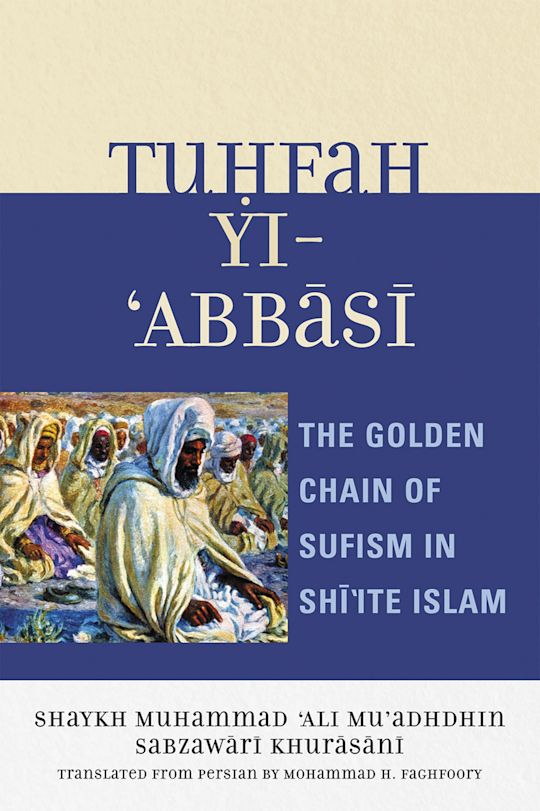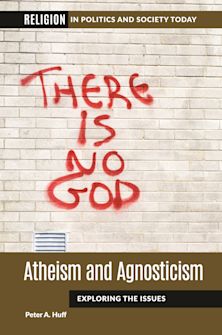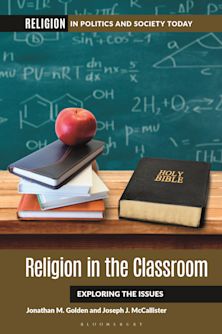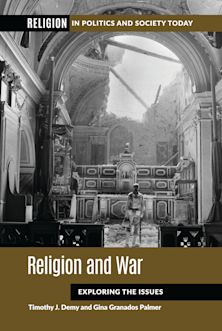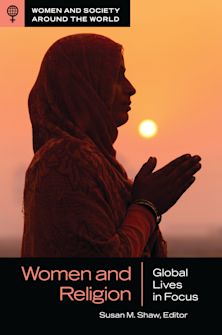- Home
- ACADEMIC
- Religious Studies
- Reference
- Tuhfah-yi 'Abbasi
This product is usually dispatched within 3 days
- Delivery and returns info
-
Free US delivery on orders $35 or over
You must sign in to add this item to your wishlist. Please sign in or create an account
Description
This book is one of the oldest and most important sources written on the esoteric teachings of Islam from a Shi'ite perspective. It demonstrates the Qur'anic origins of Sufism and its close relationship with Shi'ism. The book is based mainly on the teachings of the Qur'an, Hadith narrations of Shi'ite Imams, and the teachings of earlier Sufi masters. In this lies the uniqueness, authenticity, and strength of the book.
Tuhfah yi-' Abbasi is written in a typical prose style of the Safavid period and is replete with Arabic words and phrases. The difficulty and dryness of the style, however, is properly compensated by timely quotation of Prophetic traditions, narrations of the Shi'ite Imams, and Sufi poetry composed by 'Attar, Rumi, Hafiz, Mansur Hallaj, as well as the author.
This work conveys a universal message for all human beings, particularly at a time when Sufism and Shi'ism are misrepresented by pseudo-Sufis and extremist Shi'ite, and misunderstood by many readers in the Muslim world and in the West.
Table of Contents
Part 2 Editor's Preface
Chapter 3 Introduction
Chapter 4 On the Meaning of Sufi and Sufism and the Scarcity of Sufis among the People
Chapter 5 On the Sufis' Belief in Divine Unity
Chapter 6 On the Sufis' Belief in Prophethood and Immamate
Chapter 7 On the Sufis' Belief in the Return to God
Chapter 8 Explaining How the Sufis are Connected to the Sinless Imams
Chapter 9 On the Excellence of Knowledge and the Scholars and Their Kinds
Chapter 10 On Asceticism and Ascetic Practices
Chapter 11 On Silence
Chapter 12 On Hunger and Night Vigil
Chapter 13 On Remembrance of God
Chapter 14 On the Meaning of Trust in God
Chapter 15 On Contentment and Submission
Chapter 16 On [the Excellence of] Forty Day Worship
Chapter 17 On the Permissibility of Listening to Pleasing Music
Chapter 18 On Ecstasy and Swooning
Chapter 19 On the Need for a Master and the Explanation of the Rules and Etiquette for the Master and the Disciple
Chapter 20 Conclusion: On the Sayings and Utterances of the Sufi Masters Concerning the Stations
Chapter 21 Supplement: On Divine Justice
Part 22 Appendix: The Founder and the Masters of the Blessed Dhahabiyah Order
Part 23 Bibliography
Part 24 Index of Qur'anic Verses
Part 25 General Index
Product details
| Published | Oct 05 2007 |
|---|---|
| Format | Paperback |
| Edition | 1st |
| Extent | 324 |
| ISBN | 9780761838012 |
| Imprint | University Press of America |
| Dimensions | 9 x 6 inches |
| Publisher | Bloomsbury Publishing |
About the contributors
Reviews
-
Thanks to the diligence of Professor Mohammad H. Faghfoory, the translation of Tuhfah yi 'Abbasi (The Golden Chain of Sufism in Shi'ite Islam) long considered to be one of the most significant works on Sufism, provides us with a wealth of information concerning the practical and theoretical aspects of Sufism. This work was written during the Safavid period by one of the most illustrious proponents of gnosis, Shaykh Muhammad 'Ali Mu'adhdhin Sabzawari Khurasani. In the first part, an exquisite synopsis of the discursive aspects of the Sufi doctrine and its relationship with Shi'ism is presented and in the second part, specific practices of the practitioners of the Sufi path are discussed in some detail. I highly recommend this book to the students of Sufism, Islamic studies, Islamic intellectual thought and religious studies. It should be used as a text for Sufi studies for years to come..
Mehdi Aminrazavi, Professor of Philosophy and Religion, University of Mary Washington
-
Mohammad H. Faghfoory has rendered a great service in making available for the first time a work that is perhaps the most important Sufi text of the Safavid period. This book is of great value for students of Sufism, Shi'ism and Persian culture of the Safavid period in general.
Seyyed Hossein Nasr, George Washington University, author of Knowledge and the Sacred
-
Muslim scholars believe that purification of the soul is attainable through pursuing rigorous spiritual life and practices. This is the essential objective of esoteric Islam. In my opinion, Tuhfah yi 'Abbasi is the best book written on this subject from a Shi'ite perspective. It explains in simple language the details of spiritual journey and the processes that an aspiring wayfarer goes through to purify his soul and reach spiritual perfection.
Ayatullah Dr. Sayyid Fazil Milani, Muslim Scholar; Dean, International Colleges for Islamic Studies, London
-
Thanks to the diligence of Professor Mohammad H. Faghfoory, the translation of Tuhfah yi 'Abbasi (The Golden Chain of Sufism in Shi'ite Islam) long considered to be one of the most significant works on Sufism, provides us with a wealth of information concerning the practical and theoretical aspects of Sufism. This work was written during the Safavid period by one of the most illustrious proponents of gnosis, Shaykh Muhammad 'Ali Mu'adhdhin Sabzawari Khurasani. In the first part, an exquisite synopsis of the discursive aspects of the Sufi doctrine and its relationship with Shi'ism is presented and in the second part, specific practices of the practitioners of the Sufi path are discussed in some detail. I highly recommend this book to the students of Sufism, Islamic studies, Islamic intellectual thought and religious studies. It should be used as a text for Sufi studies for years to come.
Mehdi Aminrazavi, Professor of Philosophy and Religion, University of Mary Washington









